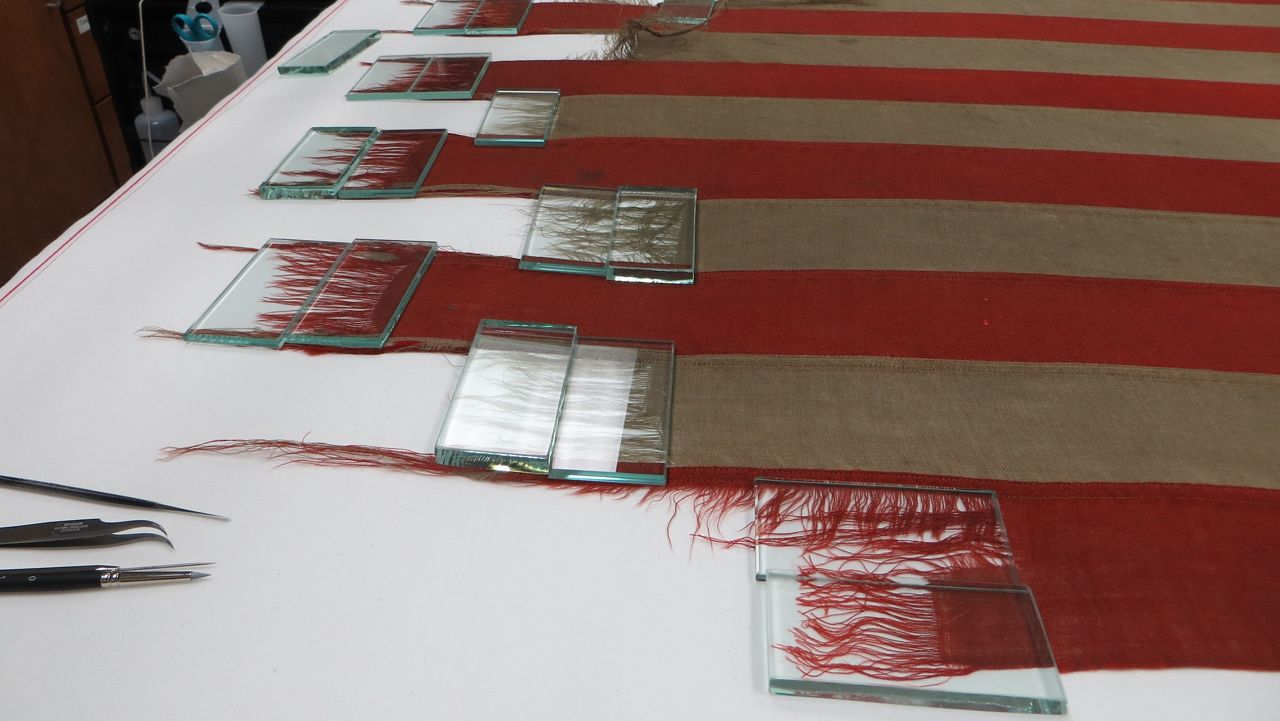RALEIGH, N.C. — Flag Day is a day that commemorates the adoption of the Stars and Stripes as the official flag of the United States.
Our nation’s flag has had 27 different variations, but it’s possible we wouldn’t know that without the people who help preserve our flags.
Paige Myers specializes in preserving textiles and works at the North Carolina Museum of History.
“As conservators, we don’t like to change things. We like to keep them as they are,” Myers said.
Earlier this year, Myers helped preserve a flag that once flew near Iwo Jima in 1945.
“What we have to do to preserve this flag is, we have to remove as much as we can of the dirt that’s in the flag, but yet preserve what’s there,” Myers said. “Some of my tools are actually medical or dental tools. Those are for aligning threads. We sew with curved needles. This needle is a suture needle used for eye surgery.”
Plenty of patience and steady hands are also in her toolbox.
“With this flag and the conditions that it’s in, it only took about 10 hours or 12 hours. But if it’s damaged more, it could take many more hours to conserve,” Myers said.

For Myers, every thread is precious and every piece is worthy of preserving.
“No matter what the flag may represent, we need to preserve it because future generations need to know the history of the flag and at that time, what it represented,” Myers said.
Many people probably have the type of flag in their family that is folded and in a box or frame. Myers said you should never unfold them because it ruins the integrity. Even when museums get flags like that, they keep them folded when they are cleaned.
If you’re interested in learning about the conservation of anything, the museum offers "Conservation Assistance Days" for free. You can bring in up to three items, and museum curators will tell you the best way to care for them so they stay in top condition.
The next Conservation Assistance Day at the Museum of History in Raleigh is July 23. To make an appointment, call John Campbell at 919-814-6978.



